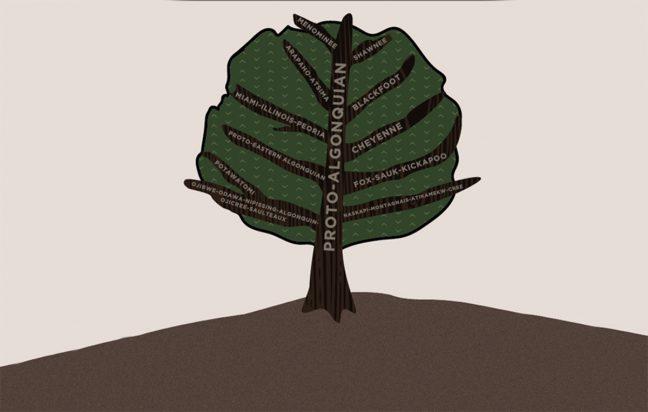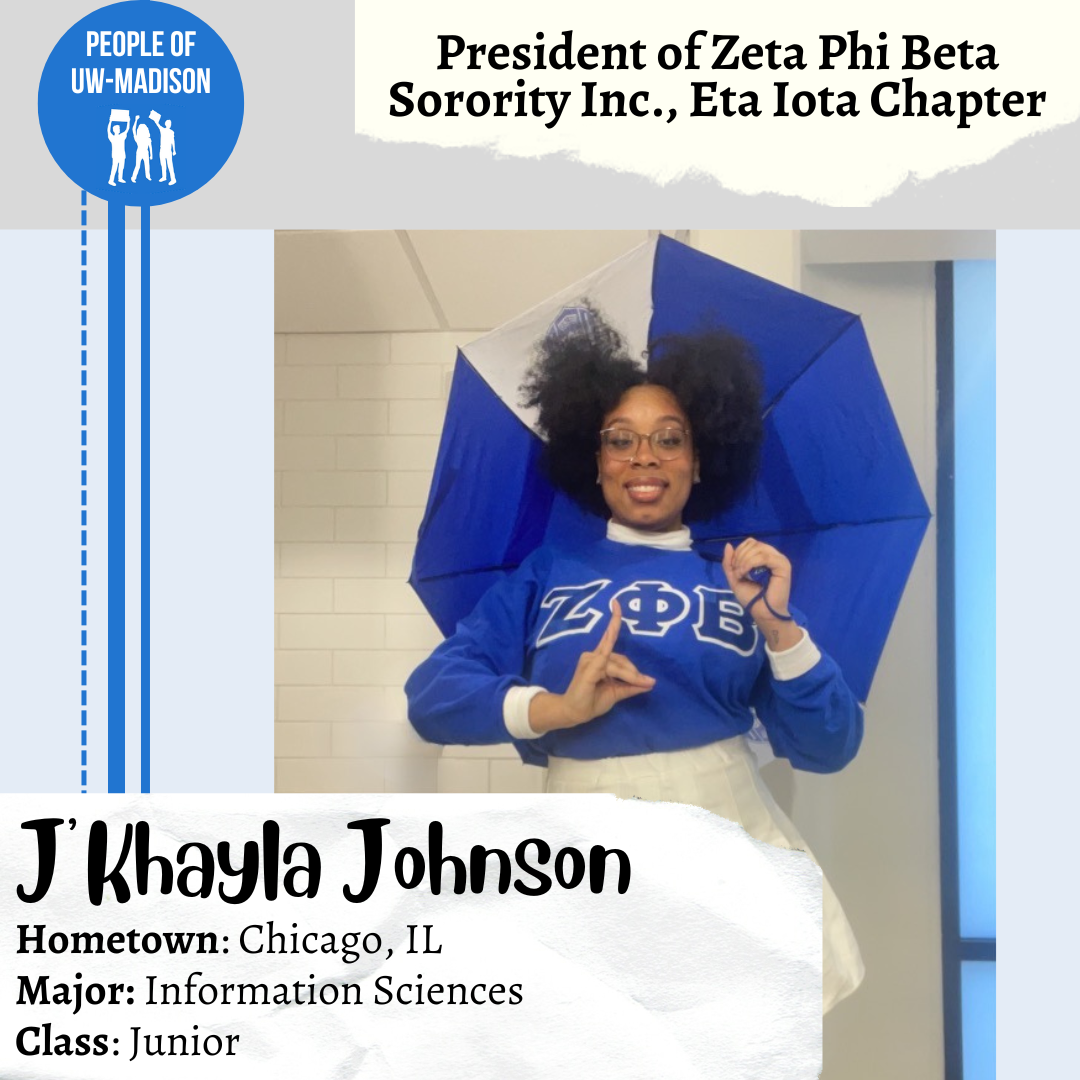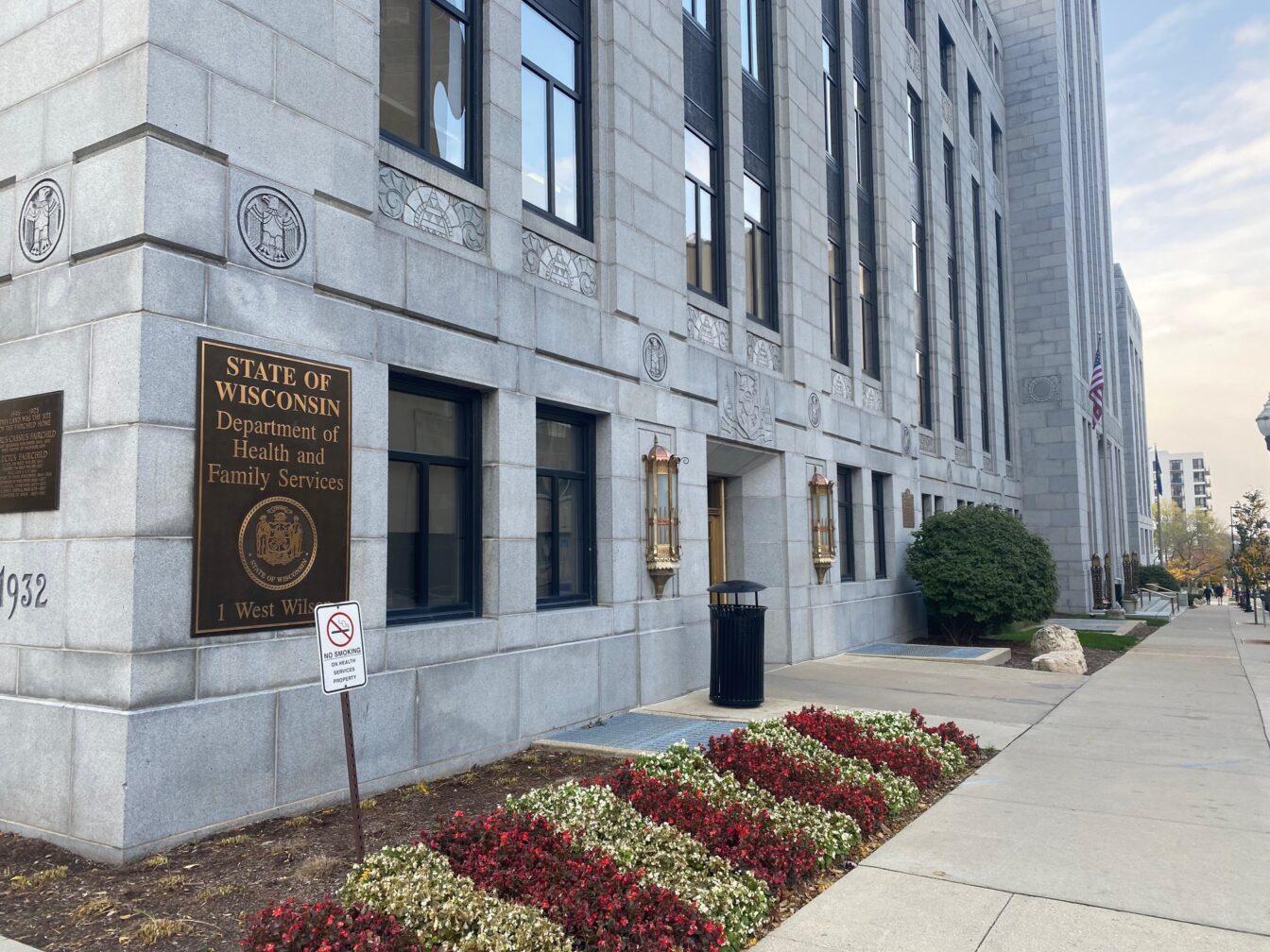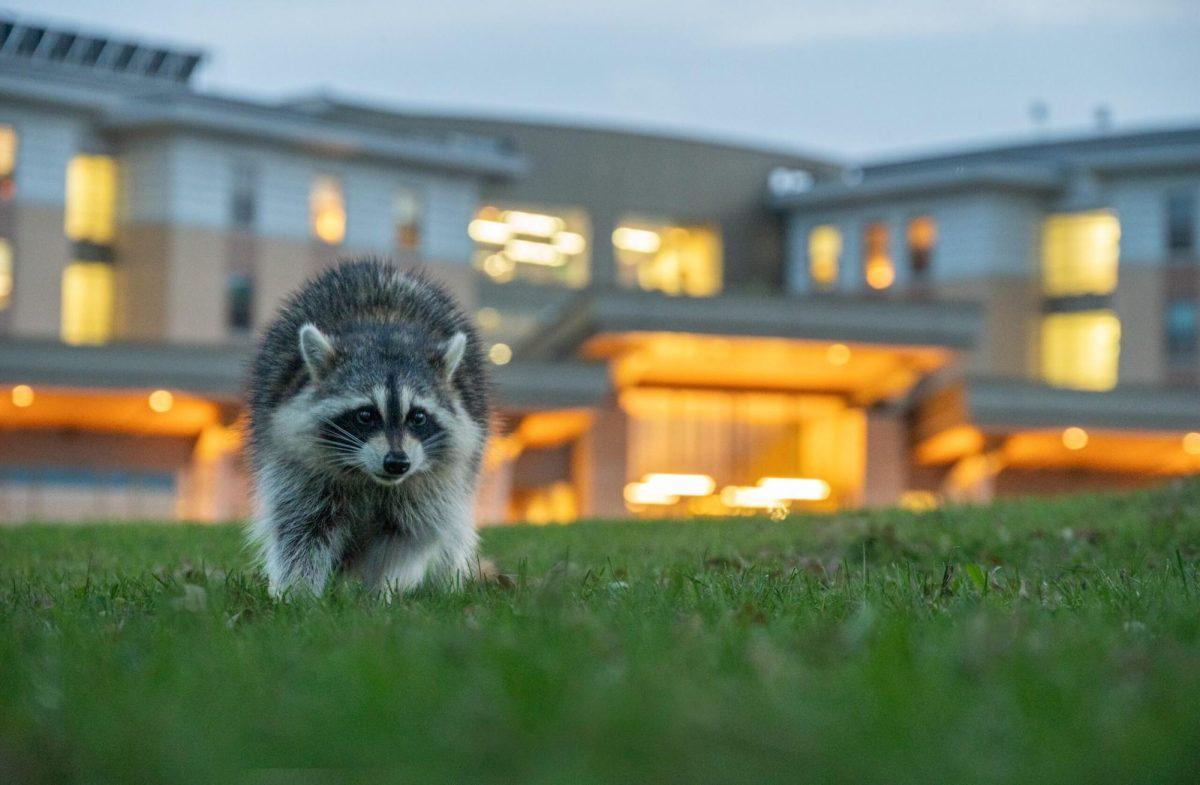Brittany Williams, a Ph.D. candidate at University of Wisconsin studying linguistics, can vividly recall her experiences working with speakers on various Native American reservations across the Midwest.
“They would tell their stories [in their native languages] and oftentimes they would cry — [it’s] hard for them to have this space talking to a white person in their language … and have it be OK,” Williams said.
Historically, Williams said, these communities were taught that their way of life was wrong, and that it wasn’t OK to be native. Despite this, the people Williams has and is working with understand how beautiful and complex their languages are, and there is a strong desire within communities to keep them.
Williams used to work with the Menominee tribe in Wisconsin, helping UW linguistics professor Monica Macaulay digitize transcribed recordings of Menominee language speakers to determine Menominee language change over time. The Menominee, along with the Ojibwe and Ho-Chunk, are some of the original inhabitants of Wisconsin, according to the Wisconsin Department of Health Services.

Alix DeBroux/The Badger Herald
Now, Williams primarily focuses on the language of the Hidatsa tribe in North Dakota.
Like other linguists, Williams understands the value of preserving native languages. Diversity is important in biology because it strengthens an ecosystem, Williams said. If that same mentality is extended to language, diversity in language just makes a community stronger, she said.
While Williams embraces the work done by other American linguists abroad, such as working with aboriginal communities in Australia, she said there is something about staying in the U.S. and working with Native American communities that attracts her.
“I feel really passionate about staying here and reversing what my ancestors had done,” Williams said.
After she earns her Ph.D., Williams hopes to become a community linguist. In this position, she would record those who grew up speaking the language, or those who acquired the language after growing up to better understand the structures of different languages.
“Scientifically, we need to study these languages because if we only study major world languages, we only learn so much about what the mind is capable of in terms of language,” she said.
Losing the language
Patty Loew, a UW life sciences communication professor, is Ojibwe, but she grew up without speaking or learning her native language, called Ojibwemowin. Macaulay said this is not uncommon for children or grandchildren of native speakers who attended boarding schools in the U.S.
“You have this generation of people that went through this incredibly traumatic thing [the boarding schools] and they come back and they don’t want to speak the language or teach it to their kids,” Macaulay said. “Then in the next generation or two, kids or their grandchildren ask, ‘What happened here, why don’t we speak our native language?’”
Loew experienced just that as she grew up. Her grandfather had been enrolled in boarding school beginning at age four, where he “pretty much had the language [Ojibwemowin] beaten out of him.”
“Scientifically, we need to study these languages because if we only study major world languages, we only learn so much about what the mind is capable of in terms of language.”
The process of sending Native American children to boarding schools persisted for about a century, through the later half of the 1900s, Macaulay said. Native American children as young as four or five were forcibly removed from their reservations and enrolled in boarding schools across the country — some staying through grade 12, Macaulay said. They were barred from speaking their native languages as part of the process to assimilate into white culture, she said.
After spending about 10 years in a mission school in Michigan from 1900 to 1910, followed by five years at a boarding school, Loew’s grandfather participated in military training for two years and served in World War I. He was stationed in France in 1918. Following the war’s end, Loew’s grandfather returned to the reservation for the first time. Nobody knew him and he claimed to not remember any Ojibwemowin, Loew said.
Loew’s grandfather settled in Milwaukee after that. He never taught his children the language in an effort to protect them from the discrimination he experienced, Loew said.
But when Loew and her aunts and uncles interviewed her grandfather prior to his death, Ojibwemowin words popped up in his speech. By the end of the interview, Loew said her grandfather spoke entirely in Ojibwemowin — he had never forgotten it.
Now Loew is working to learn what she can.
Alyssa Daniels, a UW junior studying conservation biology, described a similar experience. Growing up in Knoxville, Tennessee as half-Eastern Cherokee, she and her family didn’t speak their language — and there was no one who could teach it to them.
The last person in her family to speak their language fluently was her great grandmother, Daniels said. While her grandfather could speak it, he died when Daniels’ mom was 12 years old, so her mom did not have a chance to learn the language fluently.
But Daniels and her mother both decided they would learn their language together.
“My mom now sees what a great loss it is that we don’t speak our language,” Daniels said. “But we’re going to change that.”
Language as culture
As Loew has learned Ojibwemowin, she has picked up not just useful vocabulary and grammar, but some semblance of Ojibwe culture as well. In Ojibwemowin, there are about eight different words for cousin, words that offer distinctions between a mother’s or a father’s cousin, in addition to the birth order of these cousins, Loew said.
“You think, ‘Well, why would there be so many different words for cousin?’ Then you realize, ‘Oh, this is a group of people for whom extended family is really important,’” Loew said.
Daniels too sees a strong relationship between language and culture, especially spiritually.
Spirituality is important for Daniels and her culture, she said, and it differs greatly from the spirituality practiced by a lot of Western cultures.
“A lot of Western culture limits spirituality, the way I see it, because the way we talk about it is it’s a way of life. It’s not like you go to church one day and that’s the time you dedicate all your spirituality to,” Daniels said. “You constantly live as a sacred being, and in order to be sacred, you need to respect that everything else is sacred as well.”
In terms of her spirituality as an Eastern Cherokee, she finds it difficult to capture it and describe it in English, as the full meanings of some of the words simply cannot be translated.
“A lot of the spirituality, you can’t translate it completely,” Daniels said. “The way that we view God in general isn’t God — we never had a name for that, the Europeans really gave us that name. ‘The Great Spirit’ is what they translated it as, but that’s not what it means. If I had that tool [language] it would help me a lot in furthering my spiritual experience.”
Language preservation
A common myth persists that there is a single Native American language that is spoken among all tribes, Williams said. But just like there are different languages in different countries, there are different Native American languages in every region, she said.
“Here in America, we have over 140 language families — just language families, not even just individual languages,” Williams said.
Language families are languages related to one another through common descent, similar to family trees, Macaulay said. For example, Spanish, Italian and French, among others, make up the Romance languages, while German, English, Dutch and others are classified as Germanic languages.
With so many languages within the U.S., their vitality varies, particularly within Native American communities. The vitality of a language can be described on a wide spectrum, with two of the classifications being dormant and endangered, Rand Valentine, UW American Indian Studies Program director, said.
Dormancy, originating from the Latin word for “sleeping,” is a concept that has arisen recently because, provided a community has enough information about the language, members can “bring a language back from its traditional death,” Valentine said.
“It’s [language] a fragile human chain, and when you break that, it’s lost,” he said. “Language is a chain link to the past; it’s very important to people.”
When languages are labeled as endangered, on the other hand, it signifies that while a community may still have speakers, the language likely could go dormant within a few generations, Macaulay said. In this case, a community must take certain measures to revitalize it, she said.
Macaulay stressed that linguists themselves are not the drivers behind language revitalization efforts within a community. That initiative, she said, must come from the Native American community itself, and linguists can assist by providing technical knowledge and tools to make it happen. This is a practice she herself employs in her work with the Menominee, which she said has between one and five native speakers remaining.
Therefore, to revitalize endangered languages, communities must first be able to dedicate themselves to revitalizing their language, and then get children to begin speaking the language, Macaulay said. The means of doing this for many tribes is the construction of an immersion school for children language learners, she said.
“It’s [language] a fragile human chain, and when you break that, it’s lost. Language is a chain link to the past.”
‘A language of this locale’
Though the Ho-Chunk do not have reservations within Wisconsin, Valentine said in Madison and especially at UW, there is a vibrant and robust community of Ho-Chunk students, faculty and staff members.
Cecil Garvin, a Ho-Chunk elder, has been teaching Ho-Chunk language classes to small groups on the UW campus for more than five years. His class, which meets two to three times a week, is comprised of about five students, other graduate students and community members, who come together to speak, read and write in the Ho-Chunk language, which is called Hocąk.
“A lot of people on campus want to study the languages that represent the first peoples of our state,” Valentine said. “A lot of students’ … heritage is Ho-Chunk or Ojibwe, so they want to study it as well. [Hocąk] is a language of this locale.”
In the last 15 years alone, Garvin estimates that the number of speakers fluent in Hocąk decreased from around 300 to less than 100.
“I’m 65,” Garvin said, “And when we have the passing of another Ho-Chunk elder around my age, we lose another native speaker.”
While Hocąk is an endangered language, Garvin is hopeful for the future.
Overall, the Ho-Chunk community has invested a lot of their resources into preserving their language, Valentine said. These include programs across the state, in the forms of high school language programs, summer immersion programs, community language classes and the regular development of new teaching methods and materials, among other things.
But Garvin said there’s only one method to learning and revitalizing the language: to use it at home.
Garvin has employed this method within his own family and his grandchildren are fluent in Hocąk. His grandchildren learn English with their friends and at school, he said, but Hocąk is the only language spoken at home.
Even now, Hocąk is being spoken from time to time in community gatherings, which helps encourage people to learn the language, Garvin said, all of which contributes to the overall spreading and revitalization of Hocąk.
“Even if they learn only a few words to start with, it’s catching,” he said.

















